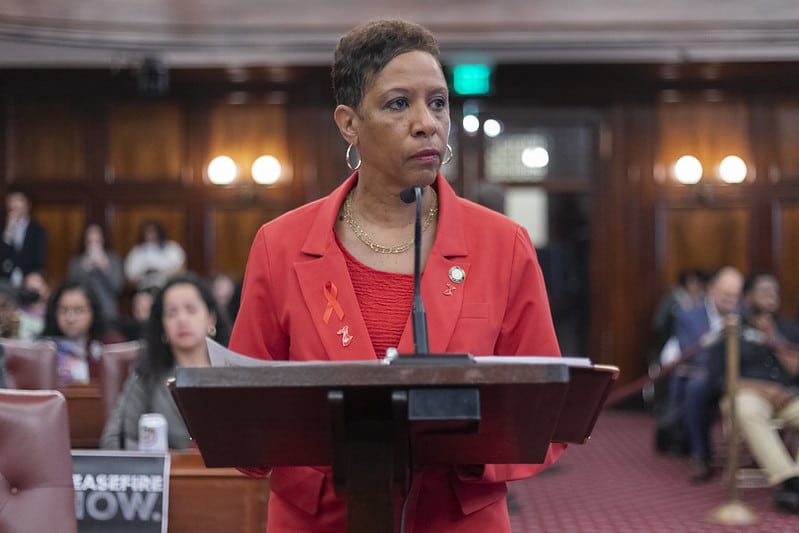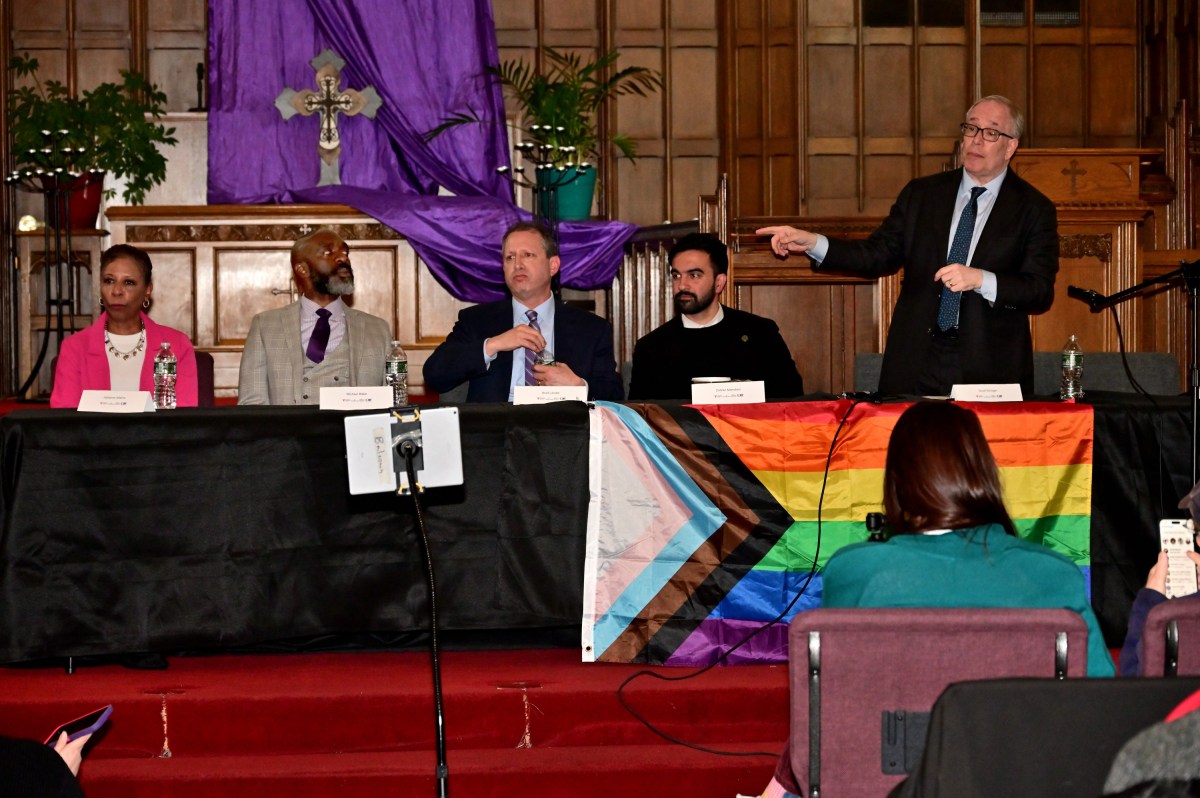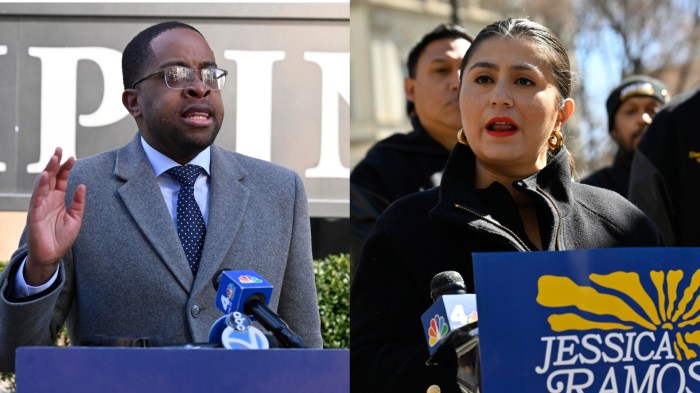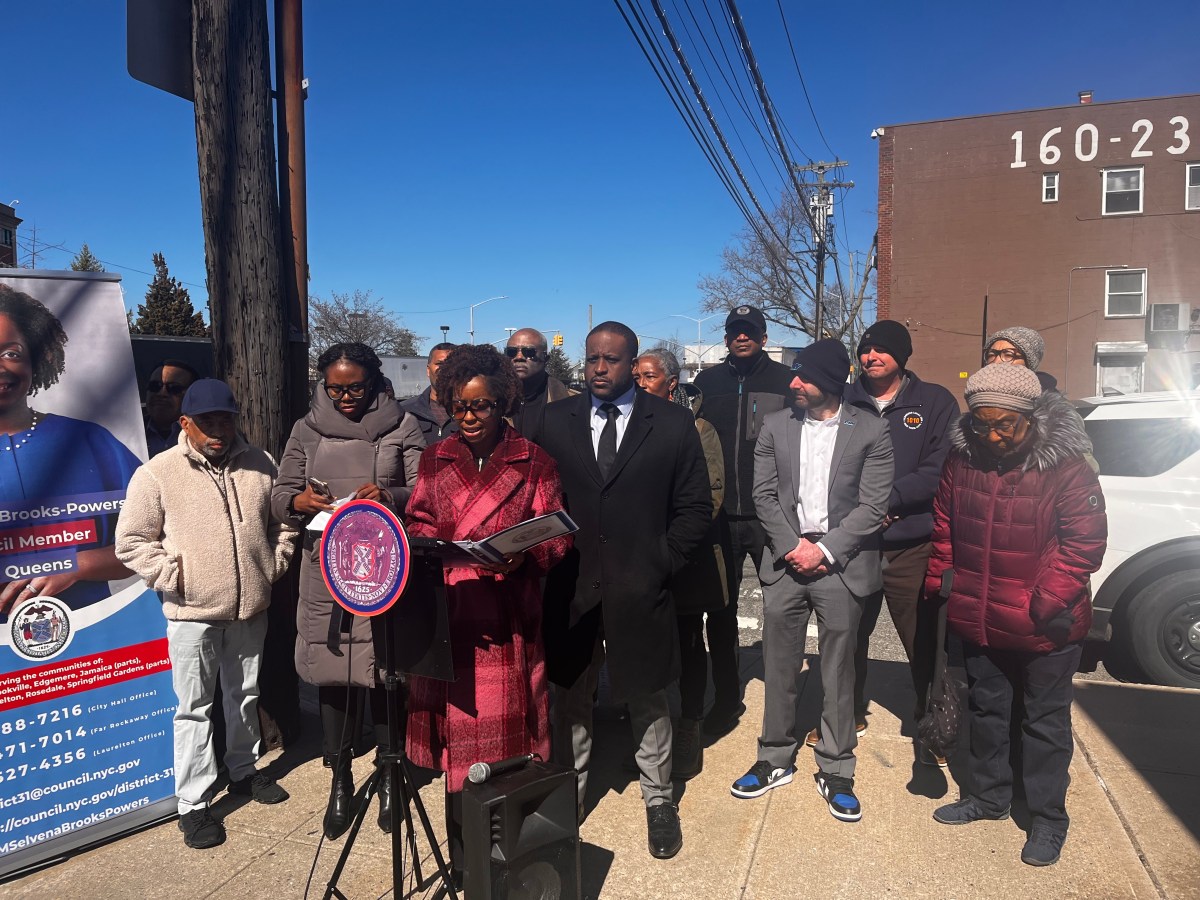The City Council is moving to join the Legal Aid Society’s recently filed class action lawsuit against Mayor Eric Adams’ administration over its refusal to enact a series of laws expanding access to housing vouchers.
The council filed a motion to intervene in the Legal Aid suit — Vincent, Tejeda, Cronneit, and Acks v. Adams and the City of New York — in New York County Supreme Court on Feb. 21. If the motion is granted, the legislative body will join the existing lawsuit from Legal Aid, which the group filed last week, as a petitioner.
Deputy Council Speaker Diana Ayala, in a statement, said the laws were passed, via an override of the mayor’s vetoes last summer, to ensure the vouchers are used “more effectively” to keep a greater number of New Yorkers off the streets.
“The mayor’s administration has a responsibility to implement local laws,” Ayala said. “The administration’s failure to implement these laws has harmful consequences for New Yorkers who lack access to housing security and need more support. As our city faces a housing shortage, it is critical to protect low-income New Yorkers from losing their homes and being forced to join the ranks of those in similar economic circumstances searching for new homes.”
The move comes after the body voted nearly two weeks ago to give Council Speaker Adrienne Adams the power to sue the administration.
It’s also the latest escalation of tensions within City Hall, as the Council and Mayor Adams have feuded in recent months over the necessity of budget cuts and the How Many Stops Act, the police reporting bill which the City Council put into law after overriding the mayor’s veto.
Legal Aid applauded the council’s motion in a Wednesday morning statement.
“We laud the City Council for filing this motion to intervene to help us hold Mayor Adams and his Administration accountable for illegally refusing to implement the reforms needed to improve and expand CityFHEPS,” the group said. “The Legal Aid Society looks forward to working with the Council through the litigation process to secure the outcome that New Yorkers need and deserve.”
Separation of powers issue
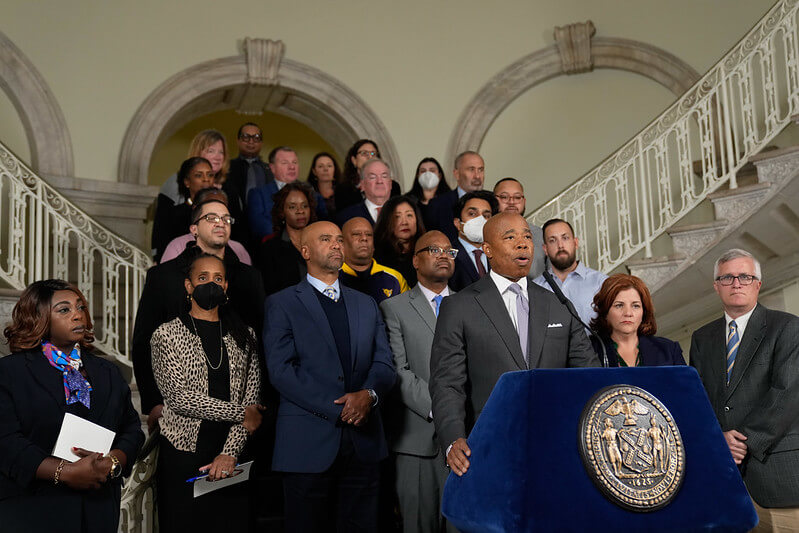
By hopping on to Legal Aid’s action, the council is seeking to force the administration to implement the laws, according to an excerpt of the motion.
The council makes a separation of powers argument, contending that the Adams’ refusal to enact the laws, “usurps the powers of the council, a co-equal branch of city government, and it upends the separation of powers enshrined in the City Charter.”
Furthermore, the body is asking the court to formally affirm that it has the ability to legislate on the voucher program — known as CityFHEPS. The move is intended to quell the Adams administration’s often cited contention that the Council does not have the authority to make changes to CityFHEPS through legislation because the program is overseen by the state government and preempted by state social services law.
“The Council’s legal action would seek a judicial order to provide clarity on insinuations inconsistently made by Mayor Adams’ administration that question the council’s legal authority to pass these laws regarding CityFHEPS,” an excerpt of the council’s legal filing reads.
Legal Aid filed its suit on behalf of four named plaintiffs representing a class of thousands of homeless and low-income New Yorkers who would be newly eligible for CityFHEPS under the laws but are unable to access it because the mayor has refused to implement them.
The laws would significantly expand the number of people eligible for CityFHEPS vouchers by making them accessible to anyone at risk of eviction and a wider-range of low-income individuals. The vouchers are currently only available to very low-income people living in homeless shelters.
The mayor has consistently railed against the legislation, arguing it would heap a $17 billion cost-burden onto city taxpayers, while creating new competition between current voucher holders and newly eligible individuals for a small number of apartments.
Adams’ Chief Counsel Lisa Zornberg, during a Tuesday press conference, repeated the administration’s often cited argument that the administration is not implementing the laws because it believes the council overstepped in passing them.
“This administration has been exceptionally clear and transparent with the City Council for many, many months that however well‑intended they were in passing the law, it’s our belief as a legal matter that that law goes beyond the City Council’s authority and that it’s actually preempted by existing state law,” Zornberg said. “So, there are significant legal issues and they will play out in court.”



